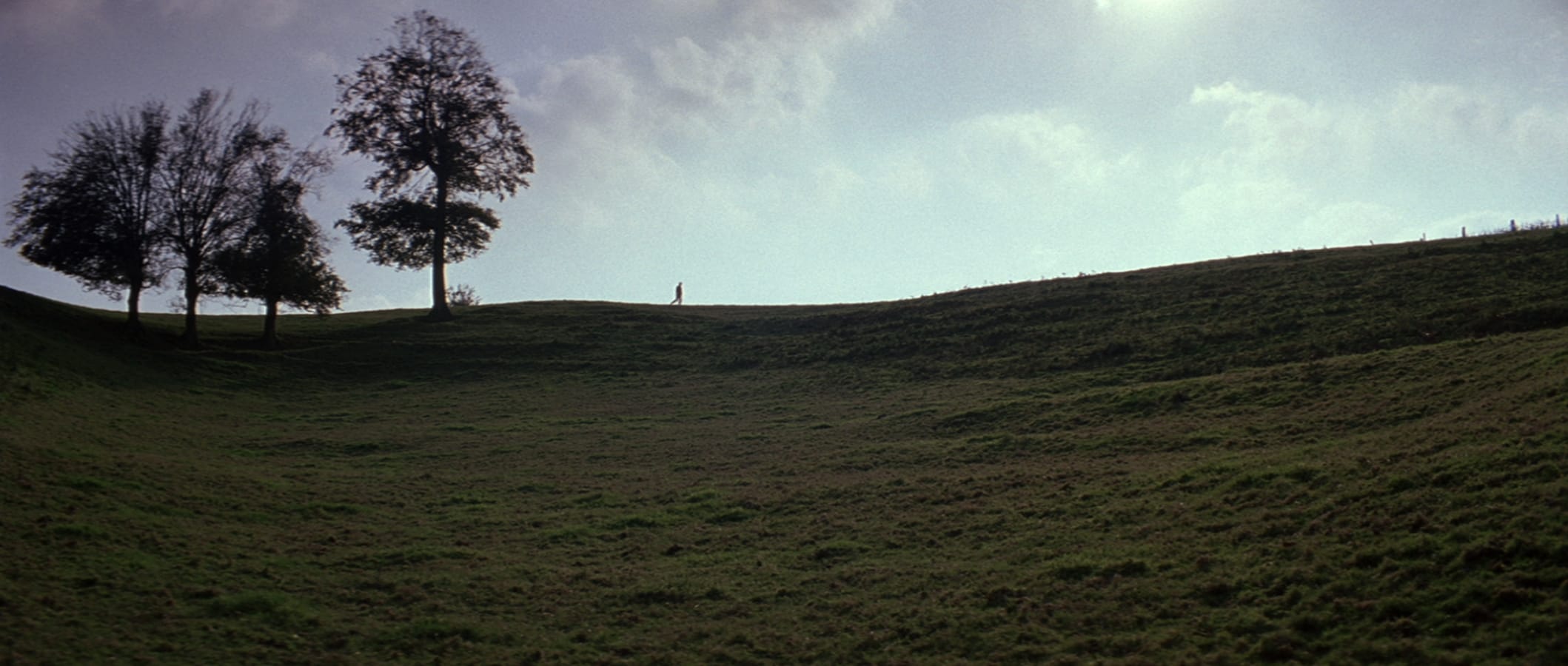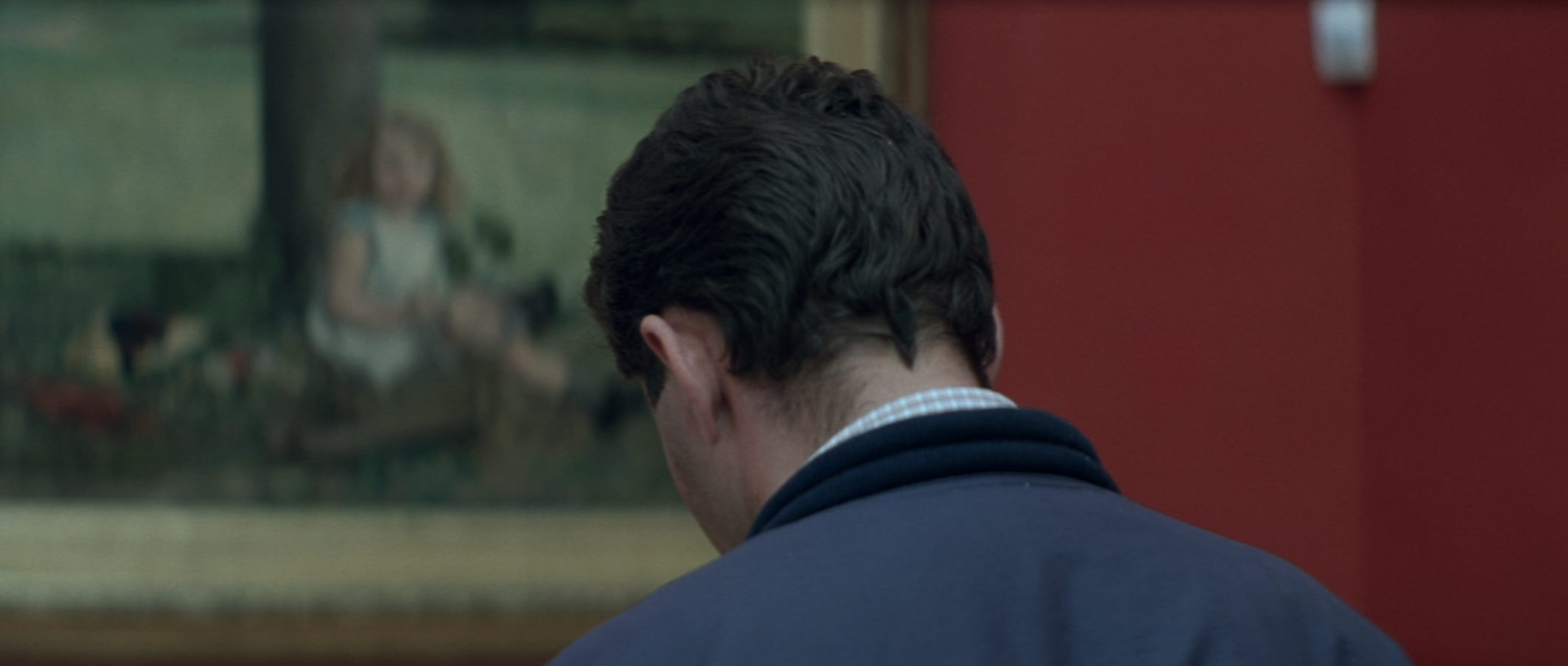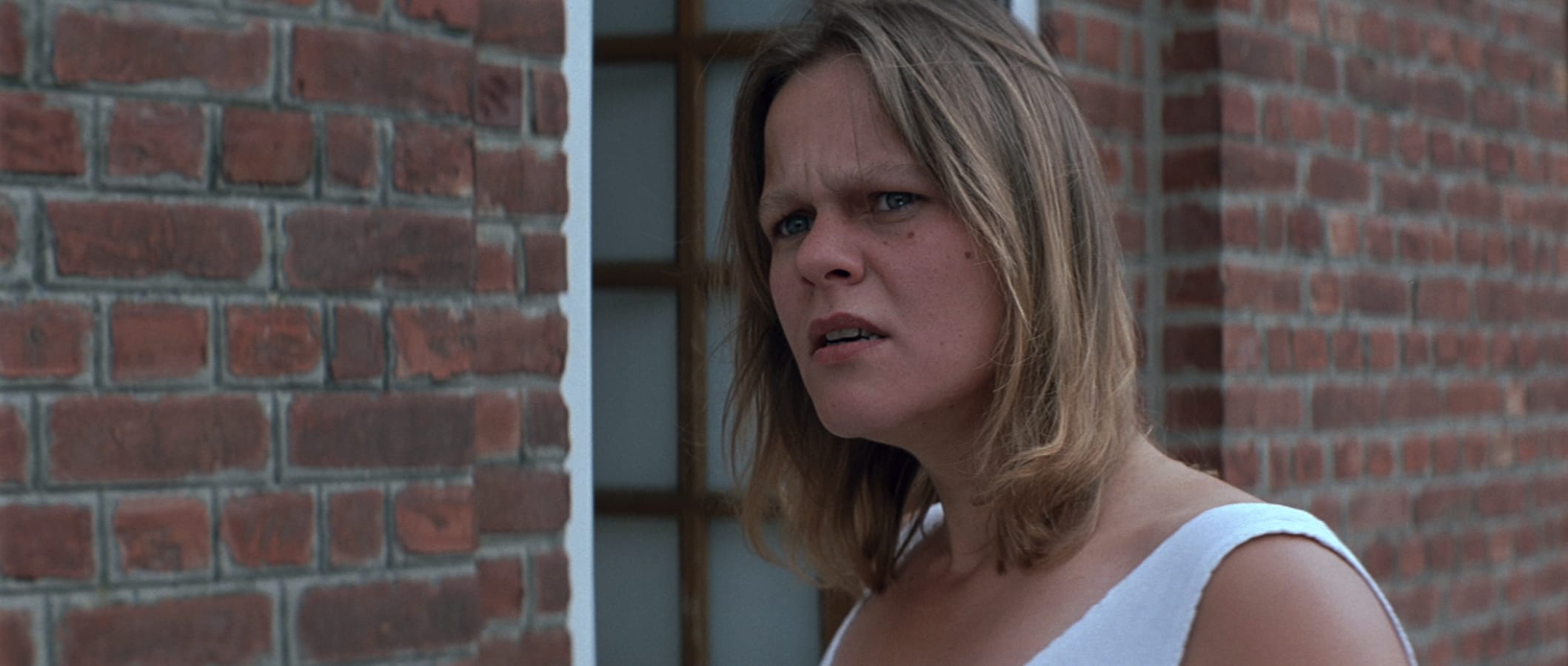L’humanité: Ordinary Human Behavior

To hear Bruno Dumont tell it, the seed for his second feature, L’humanité (1999), was planted by a performance in one of the final sequences of his 1997 debut, La vie de Jésus, in which the protagonist of that film, Freddy, is under interrogation by a detective. Most viewers probably won’t remember the nonprofessional actor who plays the officer in question: he stands at the window in profile, briefly questions Freddy without deigning to look in his direction, and leaves the screen, never to return. While English speakers assess acting performances in vague terms such as “good” and “bad,” or according to the highly subjective criterion of “believability,” the French are more categorical: a performance is “right” (“juste”) or “wrong” (“faux”). The performance of the police officer in La vie de Jésus was indubitably, hopelessly wrong, so wrong that Dumont had to find someone else to dub his voice in postproduction. Yet there was something about his delivery that inspired Dumont not only to decide that his next film would be about a police detective but to write the screenplay with this performer in mind. Dumont was drawn to the very thing that was “wrong” about the actor’s performance — a voice and presence so ill at ease with the conventions of film that they took the viewer out of cinematic reality. Dumont’s instinct told him that this break with reality might be a form of poetry, and that this poetry might bring his cinema closer to the truth. By embracing the poetry in the wrong move, Dumont made L’humanité, a film important not only because it is an unflinching, profoundly singular exploration of sex, death, guilt, and compassion but also because it released Dumont’s cinema from what naturalism there was in La vie de Jésus and set the tone for one of the great bodies of work in contemporary film.
As he had planned, Dumont offered the lead of L’humanité to the man who had inspired the screenplay. When that performer turned him down, Dumont hired the unemployed military veteran Emmanuel Schotté. While we don’t know what L’humanité would have been like with the actor for whom it was written, we can be grateful that Dumont found Schotté. Every minute that Schotté appears on-screen as Pharaon De Winter, the unlikely police detective investigating the rape and murder of an eleven-year-old girl in a small town in French Flanders, we are confronted with a presence at once so awkward and so graceful that it demands constant reassessment of the actor, the character, and the world around him. The first time I saw L’humanité, I had to stop myself from laughing aloud when Pharaon appeared with a new haircut two-thirds of the way into the story: he looked like an absolute buffoon. In the next scene, I decided the haircut had unleashed his inner heartthrob. This is only one trivial example of the way Schotté’s performance as Pharaon keeps us off-kilter, second-guessing what we see. Indeed, actors do not deliver great performances simply by persuading us that they are someone else, but by continuing to elude us, repeatedly shifting and being discovered anew, so that our perception is honed to a state of extreme acuity. In L’humanité, Schotté is a conduit to our sensitivity precisely because his presence escapes definition and the expectations we place on a leading man. The fact that some viewers initially wondered whether Schotté suffered from a mental disability only goes to show how little some of us like to face the unexpected — or simply to be moved.
As Pharaon, Schotté walks slowly, head stooped, arms hanging stiffly at his sides, with his hands dangling open. The focus of his big, staring eyes floats a little toward his prominent nose, giving him the look of an innocent or, yes, possibly a dullard. His resting face is a study in sorrow but is occasionally illuminated by a disarming smile. No matter what he does, he has an intensity of purpose and feeling that threatens to burst out of the frame, turning a throwaway moment of small talk about the weather into a seismic event by the mere concentration of his gaze. Then there is his voice, the soft voice that doesn’t fit with the big body. His speech is deliberate, with the hint of a regional singsong occasionally lifting his flat delivery. He sounds the same whether he is saying that the rape and murder of a child are horrible things or that he’ll go to the beach tomorrow. While every acting teacher in the world would tell you that Schotté’s performance is wrong, it is exquisitely right for L’humanité. Paradoxically, the “wrongness” makes the most outrageous behavior “believable”: Pharaon’s face contorting into a scream in the middle of a field; his long, fierce kiss with an acknowledged murderer; even the moment he lifts off the ground and levitates in his little garden parcel — all these are believable not because Pharaon is like someone we know but because Schotté makes us understand that anything can happen when he is on-screen.
“The miracle in Dumont’s agnostic film is not that a man rises a few inches off the ground in sorrow or meditation but that, in the face of horror, he finds it within himself to give comfort to the wrongdoer.”







